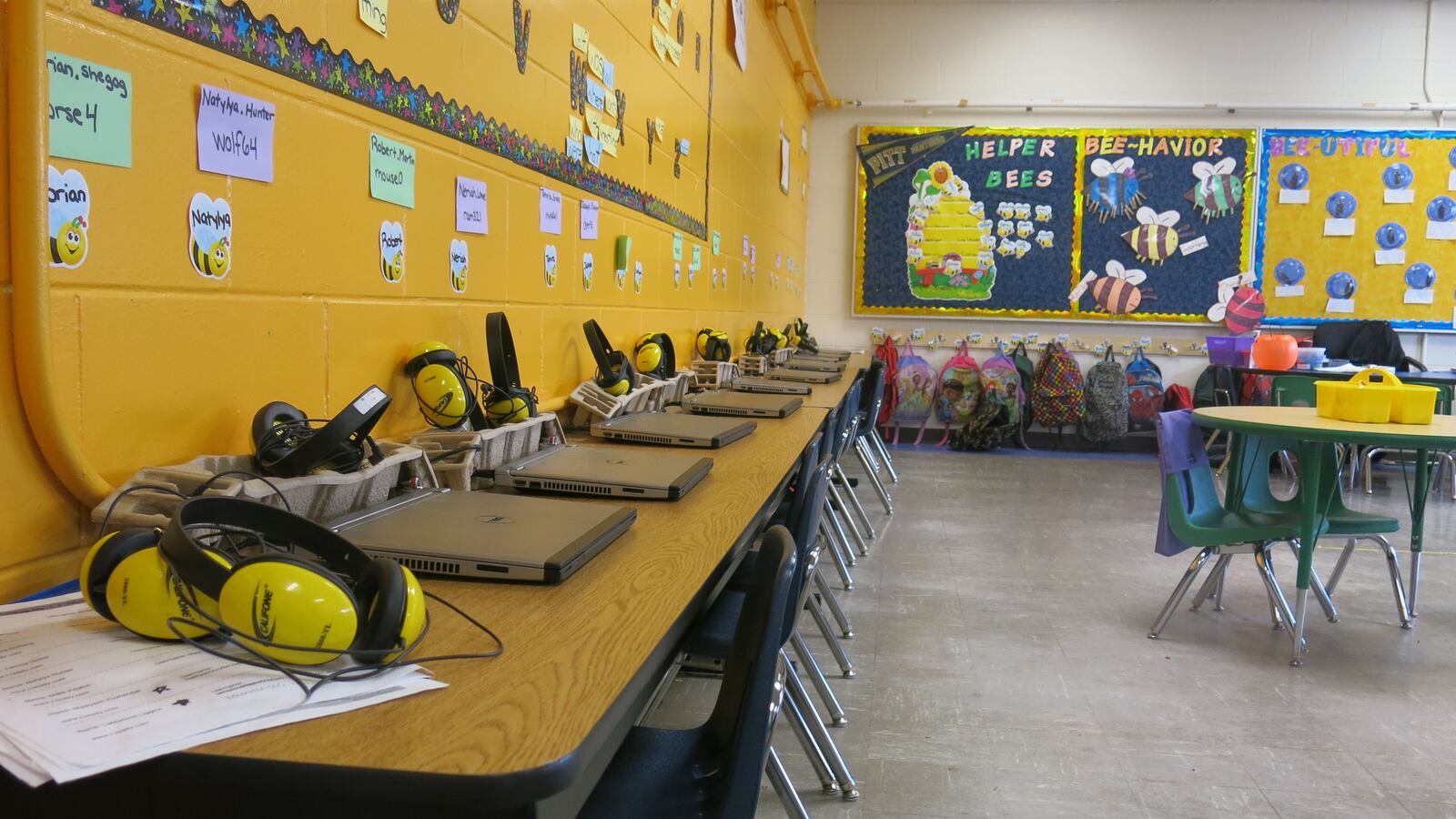Nearly all of Tennessee’s districts have the networks and devices necessary for the first round of all-online standardized tests at the end of the school year, according to a report released Friday by the Tennessee Department of Education.
However, some districts, including Shelby County Schools, are in a race against time and limited funds to obtain enough computers for the end-of-year tests, which begin in February in most schools.
Following on the heels of dozens of states nationwide, Tennessee will transition entirely to online tests next spring with the advent of the Common Core-aligned TNReady. Aiming to avoiding the technology bugs that have derailed other states’ tests, the Department of Education is working with districts to ensure they have the necessary bandwith and computers.
More than 99 percent of schools reported their networks were ready to give the test online, up from spring 2014, when about 88 percent of schools reported their networks met the recommendations for online testing, according to the department’s report. Ten percent of schools reported they still do not have the recommended number of computers or tablets. The state recommends districts have three devices per student, but considers six adequate.
No districts have requested to give the test with paper and pencil.
Districts largely funded the technology upgrades themselves.
Two years ago, Gov. Bill Haslam allotted $51 million for districts to prepare for the online PARCC test, which the legislature postponed. But the money didn’t go very far when divided among more than 140 districts, said Fred Carr, chief operating officer for Metropolitan Nashville Public Schools.
Upgrades cost more than $10 million in Nashville alone, he said. Nashville funded its computer purchases and high-speed Internet largely through money from the Nashville Metro Council. They were able to have the recommended ratio of devices to students by the end of 2013, Carr said.
“We’ve been infrastructure-planning for five or six years,” Carr said. “We didn’t wait until the last minute.”
The state’s report says Metro Nashville has only 90 percent of the necessary devices, but Carr says it has 100 percent.
Shelby County Schools — the state’s largest district and with a concentration of poor students far above the state average — is the third least prepared with just 62 percent of the devices it ultimately will need, according to the state data. The district filed a lawsuit earlier this week charging that the state doesn’t provide adequate funding for the county’s schools. The suit specifically cites a lack of funds for “technological infrastructure to support the State’s online testing mandate.”
Shelby County officials said the district had ordered more computers, which should arrive to schools in mid-October, but could not answer other questions about the district’s readiness for online testing.”
Education Commissioner Candice McQueen said in August that districts should seek computers not just to be ready for the new state tests but because students need computer skills.
“We believe locals do need to pay very close attention to investing in technology and supporting what students will do once they graduate,” McQueen said.
All districts, including Shelby County Schools, have been preparing for online tests for at least two years. The state originally was supposed to transition to the online PARCC test this spring, and social studies and writing pilot tests the past two years were also online.
To avoid network freezes when hundreds or thousands of students log on to take tests at the same time, the state has given schools flexibility in designing their testing schedules. The Department of Education has designated Oct. 1 as “Break MIST Day,” when all schools will log onto the server that will be used for TNReady, called MIST, to see if it overloads, so technology staff can troubleshoot problems before next spring’s tests.
Carr said Metro Nashville already has addressed some bugs that occurred during the online social studies tests. He predicts more will occur next spring. But, he said, the district is doing all it can to be ‘TNReady.’
“Obviously, there will be things we don’t know about, but if we can fix the ones we do, we’ll have fewer big issues,” he said.

